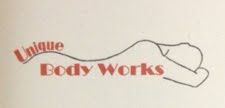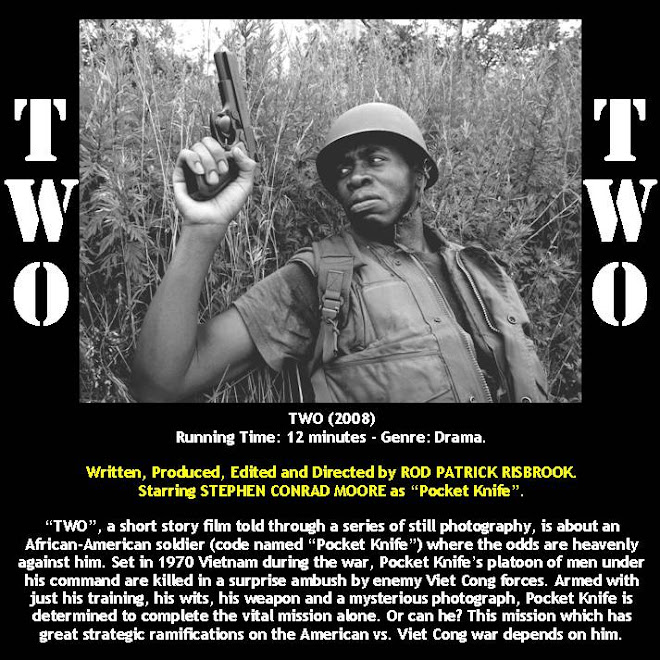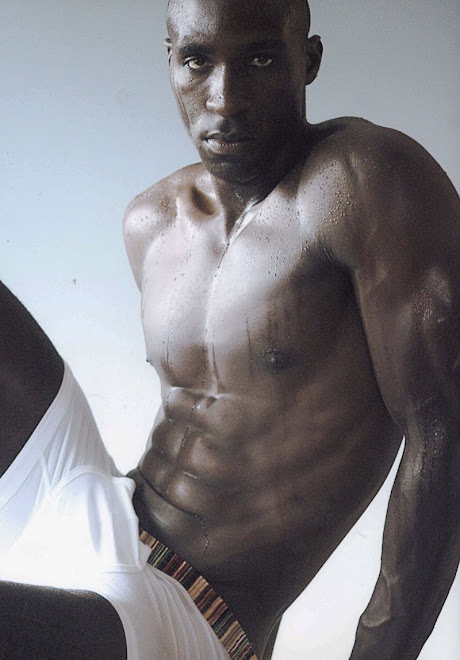Why I Support Gay Marriage
http://www.kevinpowell.net/blog/2011/06/why-i-support-gay-marriage/
My adopted home of New York is grappling with becoming the sixth (and most populous) American state to legalize gay marriage. Whether it happens or not, gay or same-sex marriage as a movement in America is here to stay. That is why I am saying very loudly, as a heterosexual male who plans on marrying the woman I love in the very near future, that I support gay marriage. And that I feel it should be the law in the entire United States one day. In short, I believe in human rights for all human beings. And equal protection under the law for all Americans.
I have actually felt this way for a number of years, as I’ve spoken about equal rights and treatment for the lesbian, gay, bisexual, and transgender community in my speeches across America, and I’ve condemned homophobia and violence against the gay community in my writings. I have even made it a point to walk in gay pride parades, as a community and political leader, and I have participated in marches and rallies calling for safe spaces for the LGBT community in the aftermath of brutal attacks.
For me the reasons for these actions, through the years, are quite simple: I believe in equal rights for every human being; I believe that each and every one of us are sisters and brothers; and because of my own experiences, as a Black man, dealing with institutional and individual racism in America, to this day, I don’t want to see any group oppressed, marginalized, discriminated against or ridiculed in the way my people have been. In other words, I am not just opposed to injustice that relates to me. I am opposed to any form of injustice that would stunt, hurt, or damage another human being, because I am so clear that we as a people are linked and if some of us are not free and empowered, then none of us are free and empowered.
I think of this a great deal when I think of women and men I know, for fear of alienation, fear of losing a job or other opportunities, and for fear of being abused verbally or physically, or both, who simply keep their sexual orientation to themselves. That is just not the way to live, where you cannot be who you truly are. Just think of the emotional and spiritual toll that must take on a person’s psyche. Could you imagine what your life would be like if you had to hide or repress parts of who you are, just to make others feel comfortable about themselves, or just to survive in a world hostile and opposed to your very existence?
This is often very noticeable in our religious settings, be it churches, synagogues, or mosques. As an African American, I know the Black community is certainly not any more homophobic than any other part of America, and I reject any claims that we are. I’ve crisscrossed our country many times and have heard and witnessed horrific homophobia from people of various backgrounds. However, I do understand why many in my community are so outspoken on the issue of gay rights and gay marriage. We’ve been a people under siege since we were kidnapped from Africa and brought to these shores as slaves four centuries ago. We’ve seen our manhood and our womanhood denigrated and castrated from multiple angles. And we are a deeply proud people, proud of what we’ve survived, proud of what we’ve achieved, and proud of our relationship to whatever God we believe in (and yes, most of us do believe in God), against all odds. That does not leave much room for honest and open dialogue about sex, sexual orientation, or the abuse and misuse of sex in my community, as is the case in other communities, unless we struggle to build and create that room. And no room, no dialogue, typically means fear, misunderstanding, and, yes, even hatred of those who are “different.”
But the grave danger of such a locked-in mindset is that right in our midst are individuals living their lives in guilt and shame because they feel, and they know, there are no safe spaces for healthy conversations on the many kinds of experiences that exist in the human family. Add in the constant barrage of negative and toxic sermonizing about gay people, including from pulpits every Sunday, and what we have is a deep inability and unwillingness to see the humanity in all of us, in spite of differences and disagreements.
I believe that is why so many in my community are hypersensitive to comparisons between the Civil Rights Movement and the gay rights movement. We as Black folks can never, for example, hide our skin color. But if one is White, or White and gay, one can more readily move and excel in America because of the persistent reality of skin-color privilege, even if you are lesbian, gay, bisexual, or transgender. And I certainly know many lesbian, gay, bisexual, and transgender Black folks who complain of the racism within the gay community, even as the movement for gay marriage spreads, presumably for all gay people. It is my sincere hope that racism in the LGBT community is eventually dealt with openly and honestly, and in a way we straight folks have historically refused to do in America.
And it is my sincere hope that Black people, my people, begin to understand that the Civil Rights Movement, and most of our movements for justice and equality in America, dating back to slavery, have been so soulfully forceful and prophetic, that inevitably other people, other groups, would be inspired to fight for their own rights, too. But because so many of us are still deeply wounded by American racism, conversations about and comparisons to our struggles come across as diminishing or denigrating our very unique American journey.
But this goes both ways. I also challenge people in the gay marriage movement’s leadership (the White leadership, that is) to really think about linking your very necessary movement to the Civil Rights Movement without ever having any real and consistent dialogue with responsible and open-minded Black leaders or other leaders of color. I clearly see a connection between each and every American movement for social justice, which is why I am an ally and supporter of the gay marriage movement. But many will not because there has not been any genuine and consistent outreach and dialogue on this issue. Just the borrowing of language, tactics, and historical reference points is not enough.
The above notwithstanding, as a Christian I refuse to be a member of any church (or visit any religious institution, regardless of faith) that recklessly and aggressively condemns homosexuals, or any spiritual center which refers to homosexuality as a “sin,” and seeks to “cure” gay people of their sexual orientation; and which, in one breath, talks about God and love yet in another breath preaches, directly or indirectly, hatred and ugliness toward gay people. Last time I checked none of us are God, none of us have had direct conversations with God, and the Christianity I believe in and practice is about love for all human beings. All means all.
Indeed, so many of us act as if gay sisters and brothers have not been in our lives and in this world until very recently. Well, they have been, and they have been a relative, a childhood friend, a hairdresser or a barber, a coworker or employer, a choir director (or even the pastor, rabbi, or imam), and they have been and are a part of every sector of American society and American history. Case in point, we often give Dr. King the major credit for the famous 1963 March on Washington, but it was actually a gay Black man named Bayard Rustin who spearheaded that historic event. But just as those who refuse to see them have habitually made Native Americans, Blacks, Latinos, Asians, women, the poor, and persons with disabilities invisible, the same has been and is the case with the gay community.
I was one of those individuals who refused to see or acknowledge the humanity of gay people until I began to actually hear to the voices of that community. In fact, that is precisely why I moved to New York City, because it truly is a rainbow, or what former Mayor David Dinkins called “a gorgeous mosaic” of human beings. Be it my cast mate Norman on the first season of MTV’s “The Real World,” or my first editor-in-chief and other staffers at Vibe magazine, or the many poets I’ve worked with in the literary scene, or the many painters, actors and actresses, singers and musicians I’ve crossed paths with, over time, as I listened and learned I heard tales of triumph and sorrow, of joy and pain, very similar to my own life journey. And all of us want the same things: a decent quality of life; decent and affordable housing; a job or career that makes us happy and that which brings us pride and dignity; and we all want love, love to give and love to receive, from family, and from an intimate partner, God and the universe willing.
My New York City journey led me, over time, to rethink my own homophobia (I was never a gay basher but I certainly had my fears and trepidations at one time), and it made me think about the former college mate of mine, a gay man, who allowed me to live with him and his teenage brother when I had no place to stay in the late 1980s. It made me think about Jonathan Van Meter, that first Vibe editor-in-chief who remains, to this day, the only person ever to give me a full-time job as a writer. It made me think of Michael Cummings, an openly gay visual artist in Harlem, who rented me a room in his brownstone when I lost everything after my Vibe years and was suffering through a terrible depression. And I think about the countless stories of gay sisters and brothers who have been verbally abused, physically assaulted, or killed for being who they are. For sure, the saddest funeral I’ve ever attended in my life was for Shani Baraka, daughter of famed poet Amiri Baraka, after she and her partner Rayshon were shot dead by the estranged husband of Shani’s older sister. It was at that funeral, as I cried and cried, that I vowed I would become outspoken, as a straight person, about homophobia, and the awful hatred many gay people, be they out or not, have to confront daily.
For that reason I am not interested in tired, predictable debates about whether someone was born lesbian, gay, bisexual, or transgender, or if they “chose to be that way.” I reject former New York Giant David Tyree’s assertion that legalized gay marriage will lead to “anarchy.” I know many same gender-loving couples, both male and female, which are raising children of their own, either by birth or adopted, and they are amazing parents. And, no, they are not “making their children be gay” as some are quick to suggest. Furthermore, this kind of ridiculous logic is what led many, back in the 1980s and early 1990s, to associate the AIDS virus solely with the gay community or, as I remember so clearly, many to think if they had an interaction of any kind with a gay person, no matter how innocent, “the gayness would rub off on them” or they would get the AIDS disease simply by touching or being in the same room or area as a gay person.
Fear is a not-so funny thing, particularly when it transforms itself into profound ignorance and hatred and some of us, again, start thinking we are God and, thus, can judge and condemn people. That is why I don’t concern myself with Biblical quotes conveniently used to attack and condemn gay people, because I know that same Bible has been used to justify, say, American slavery, or the subordination of women. What I do know is that just how it was once illegal for Blacks and Whites to marry in many states in this country, and it is morally wrong for us, in the 21st century, in our democracy, to tell people who they can and cannot love, or marry, because we want, fear and hateful reactions firmly in our hearts, to determine what love and marriage is for every single individual.
For those with selective amnesia love is an unfiltered expression of devotion to another human being. Marriage is simply the legal and official confirmation of that devotion. I know many gay couples who’ve been together for years, for decades, even, but because they cannot legally wed in most American states, they do not have the legal and economic protections of women and men married to each other. Yet they have relationships stronger and far more committed than many heterosexual couples I know personally.
And because none of us, not you, not me, can tell anyone who and how they should love, I say now is the time to come into the 21st century and acknowledge, at this historic moment, that we are all children of whatever God or Goddess we believe in (or not, and we have that right, too), all creatures of this universe, and that if our nation, and our planet, is to truly move forward, then it is time to create safe spaces for love and marriage for all people, equally.
About Kevin Powell...
 Kevin Powell, activist, writer, public speaker, is the author or editor of 10 books. His next books include Barack Obama, Ronald Reagan, and The Ghost of Dr. King: Blogs and Essays, and The Education of Kevin Powell: An Autobiography. Email him at kevin[at]kevinpowell.net or follow him on Twitter, @kevin_powell
Kevin Powell, activist, writer, public speaker, is the author or editor of 10 books. His next books include Barack Obama, Ronald Reagan, and The Ghost of Dr. King: Blogs and Essays, and The Education of Kevin Powell: An Autobiography. Email him at kevin[at]kevinpowell.net or follow him on Twitter, @kevin_powell





+LR+Edit+32.jpg)


.jpg)


























.jpg)




No comments:
Post a Comment